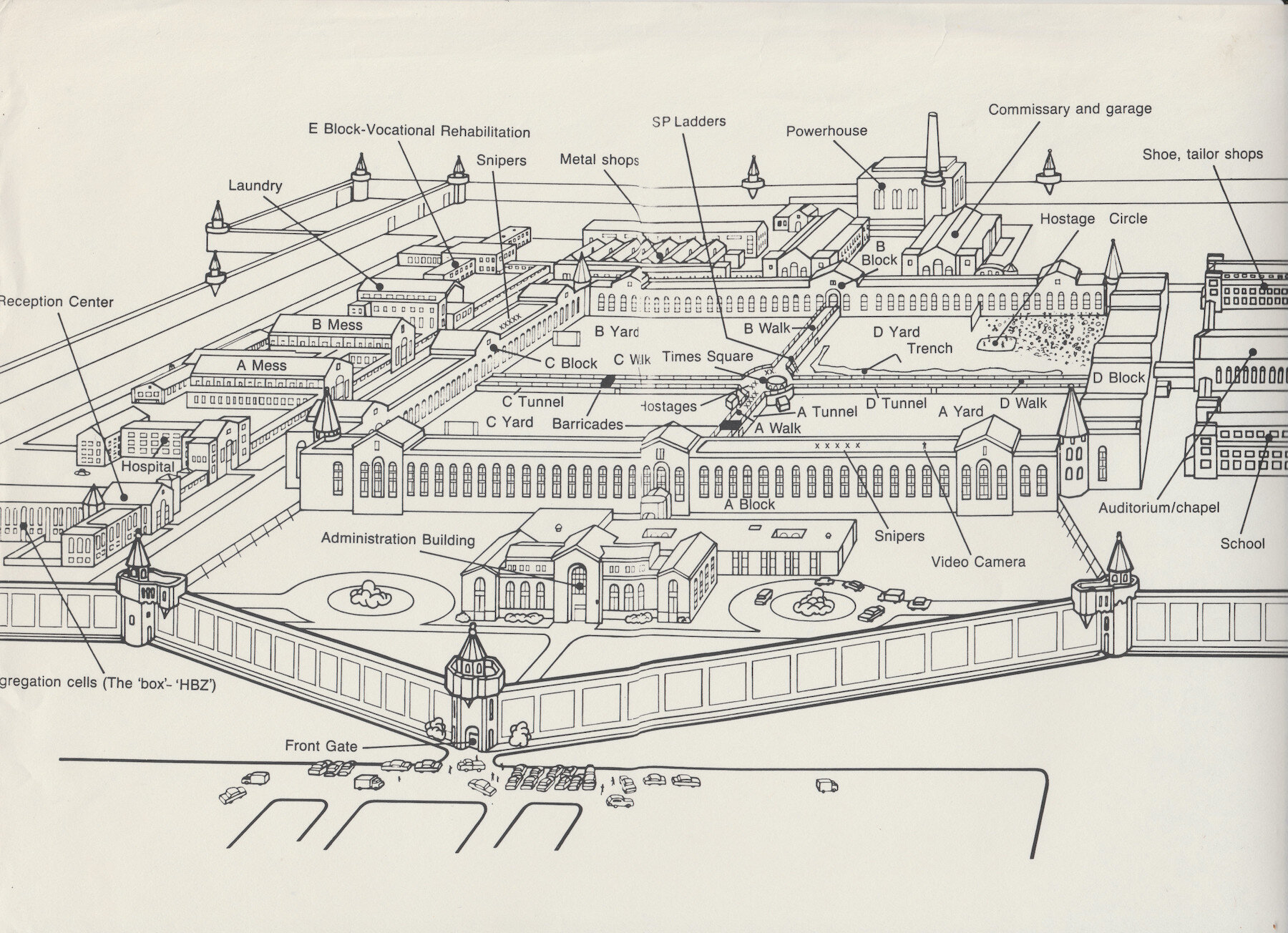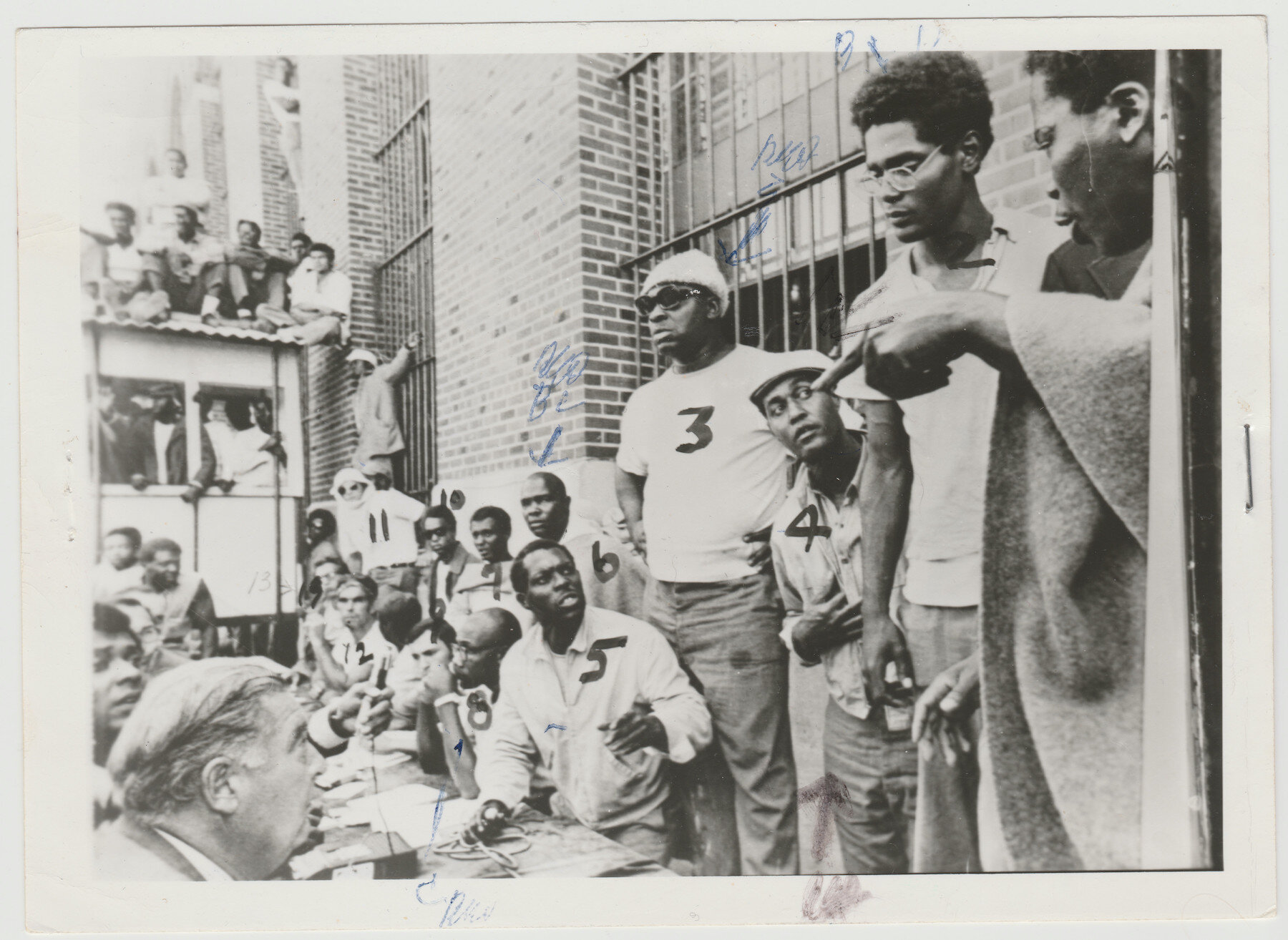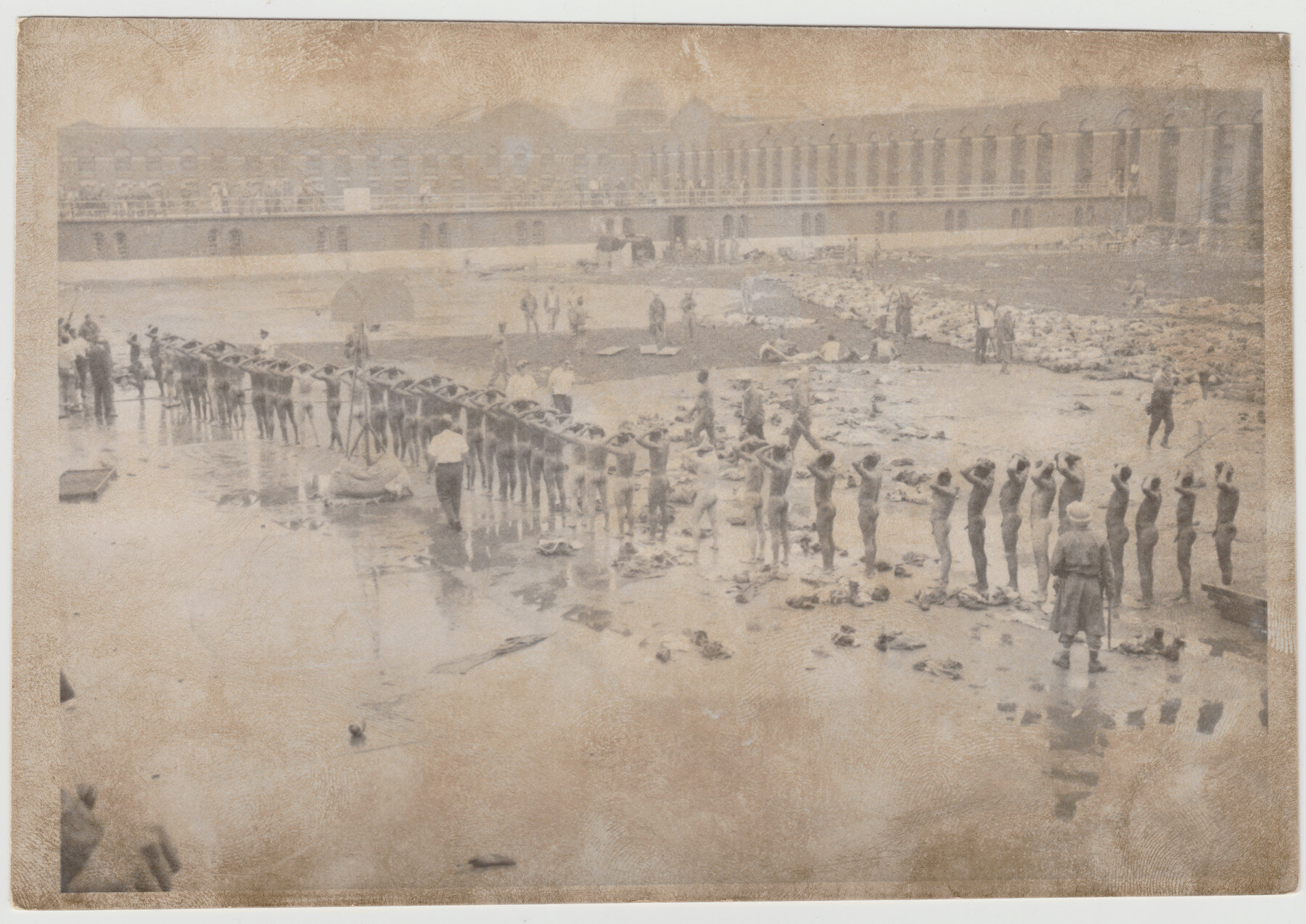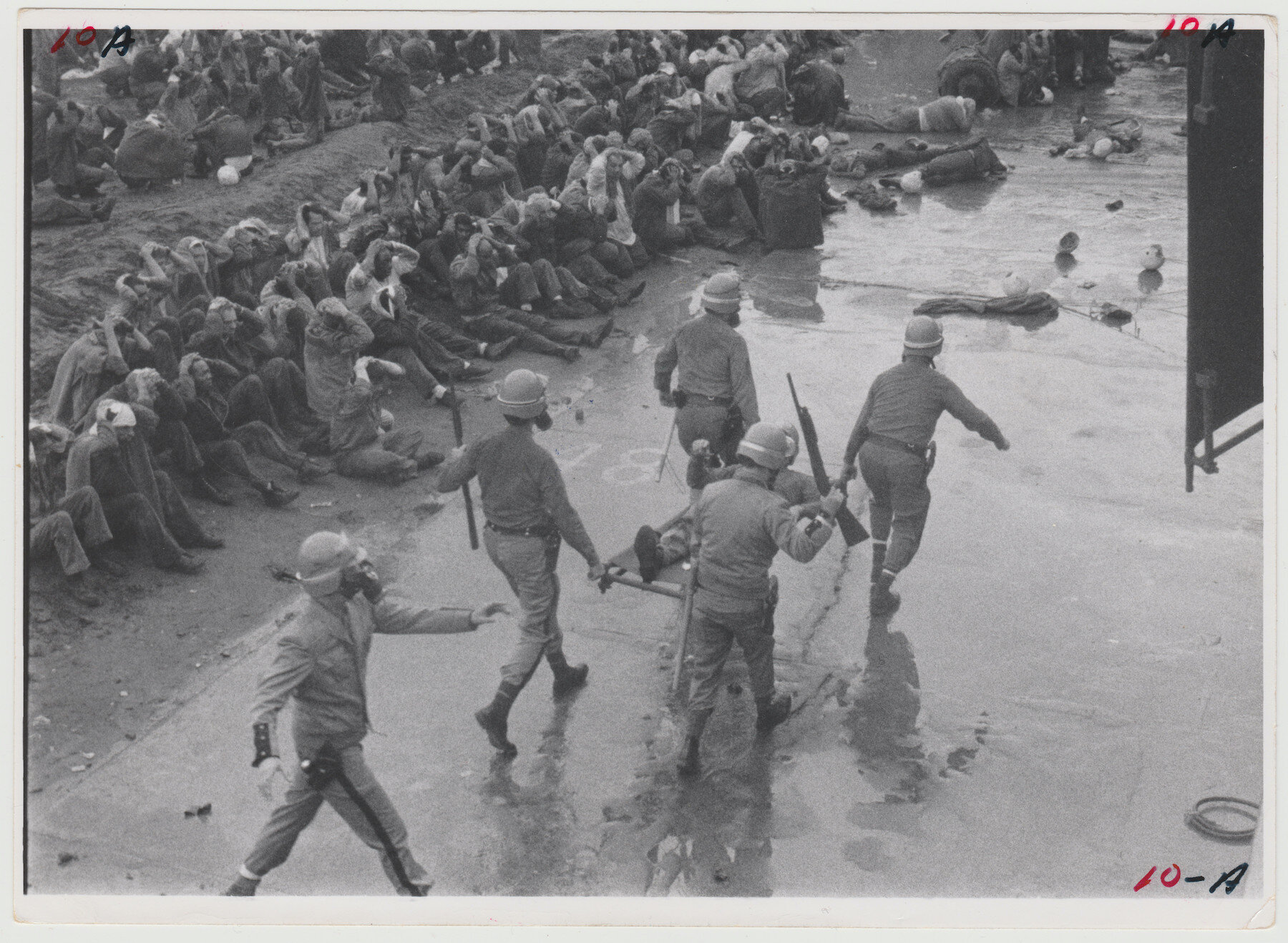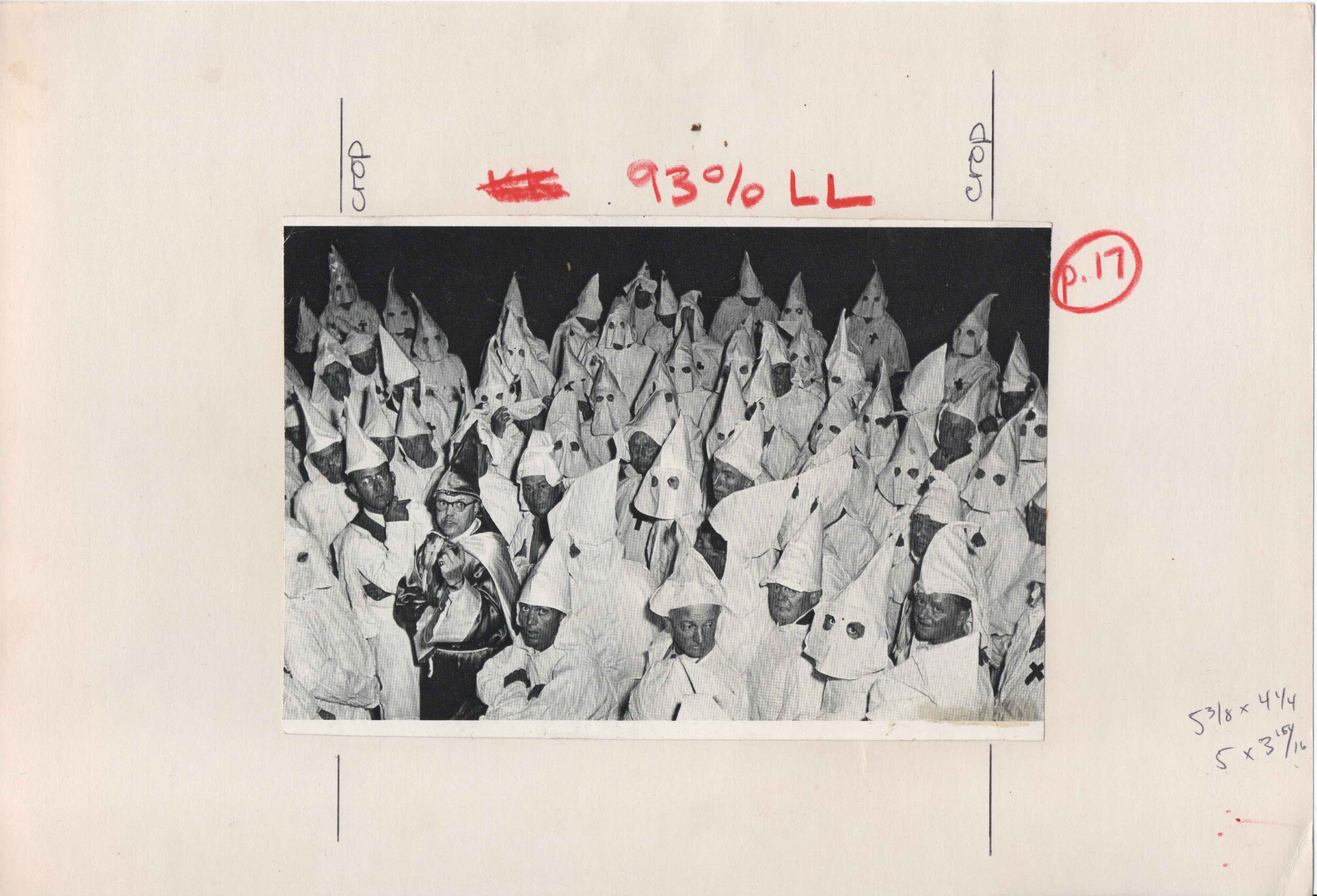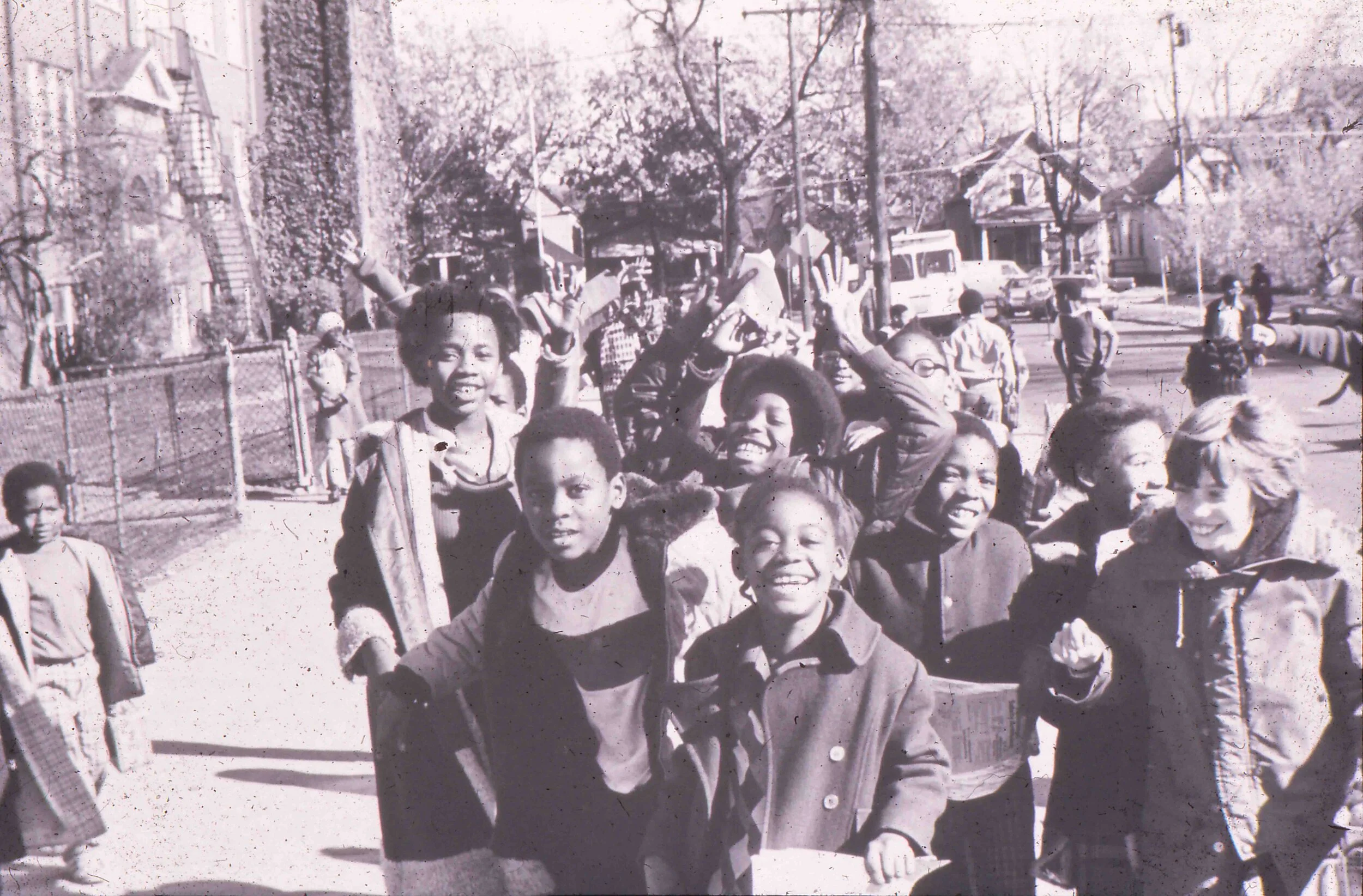On September 13, 1971 police shot and killed 39 people in Attica, New York.
They planned the destruction and carried it out with abandon, injuring hundreds and torturing the survivors. For 49 years they have covered up evidence in the case and downplayed the brutality of that day. In these ways and many others it is clear that the retaking of Attica prison set the philosophical and legal framework for modern policing.
The biggest single archive of evidence from the Attica prison rebellion was held by radical lawyer Elizabeth M. Fink. Although the State of New York denied its existence for decades, this collection of photos and videos has been declared in the public domain and made available to the public for the first time through the tireless efforts of the Elizabeth M. Fink Estate.
As we reconsider the structures of the American legal system, it is time for the rebellion and retaking of Attica Prison to be looked at through a modern lens. We encourage historians, writers, and artists in every medium to download the archive for your own projects, in preparation for the 50th anniversary in 2021. After decades of watching officials hide the truth, our goal is to force a reckoning by bombardment.
We present the photos as they were organized by the lawyers at Attica Brothers Legal Defense. Clicking a photo below will open the folder that contained it, and show you the photos it was grouped with, in the order they were in when received by the Fink estate. We will be adding new folders regularly, with the goal of having the entire archive online for scrolling or download by September 9, 2021.
A thorough understanding of the history of American law enforcement shows that removing patterns of abuse and anti-Black racism from the system is not possible. Therefore we must reimagine state interaction with civilians with a focus on human rights, dignity, and the presumption of innocence. Abolition of the current system is not negotiable.
We remain open to suggestions in regards to our own conduct, as well as the ideas of people who do not want our help. We intend to contribute to this legacy in any way we can, but maintenance of the archive is not a means to personal aggrandizement or wealth.
We are committed to anti-racist action, abolition of the current system of law enforcement, and human rights for all without exception. Because of the imposing history of our colonial society, we do not believe we are capable of envisioning a truly equitable world, and therefore look to the boldest among us for guidance.
